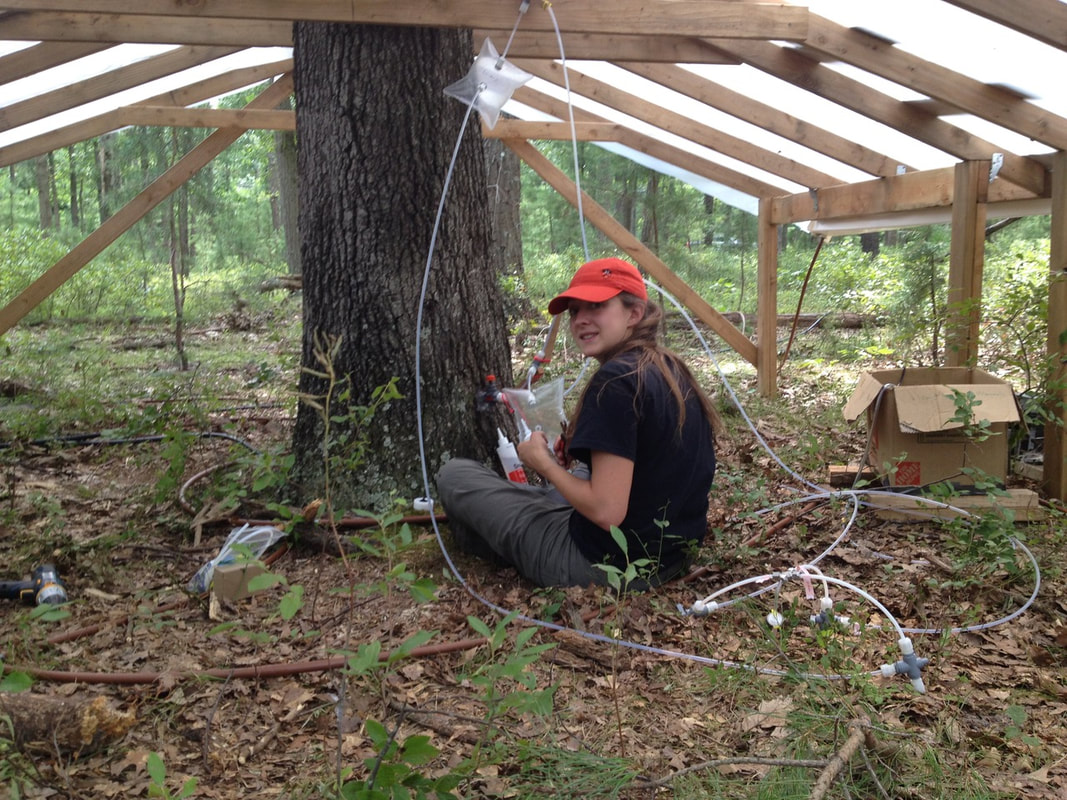To me, ecohydrology means looking at a landscape, with soil, trees, and the sky above them, and understanding how water moves between these three elements. I’m especially interested in plants and how they transport water between the soil and the atmosphere, how they deal with drought, and how their water status affects their rate of CO2 uptake.
What are your undergraduate and graduate degrees in?
I did my BSc in geosciences and my MSc in geophysical engineering, both at the Ecole et Observatoire des Sciences de la Terre (EOST), an engineering school in Strasbourg, France. I then did a PhD in Civil and Environmental Engineering at Princeton University (NJ, USA). I was part of the program in Environmental Engineering and Water Resources.
How did you arrive at working in/thinking about ecohydrology?
Very gradually! I went into geophysics because I wanted to “find groundwater in the desert”. Turns out it’s not really what geophysical engineers do… For my masters, I worked on mapping soil moisture in Kenya. My next project was on tree roots. My PhD was on leaf water, and finally for my postdoc, I’m looking at trees from satellites to understand plant water content. It has been very interesting to study each piece of the puzzle separately throughout my education, and now I feel like I’m finally ready to look at the whole picture at once.
What do you see as an important emerging area of ecohydrology?
I’m fascinated by the amazing contribution that remote sensing can bring to ecohydrology. New sensors are developed and launched every year and it’s hard to keep up with all the new data, so a lot of it is underutilized. For example, microwave remote sensing can tell you about the water content of canopies. Simultaneously, we get photosynthetic activity of vegetation from solar induced fluorescence measurements. I think that ecohydrologists are really going to benefit from bringing all these different types of measurements together to get a more complete picture of the water cycle in different ecosystems. I also really love how remote sensing means that you can choose to study any place, vegetation, or climate in the world. It’s a bit like travelling but without leaving your desk!
Do you have a favorite ecohydrology paper? Describe/explain.
Tough one! I think one of my favorite papers is: Ehleringer, J. R., & Dawson, T. E. (1992). Water uptake by plants: perspectives from stable isotope composition. Plant, Cell & Environment, 15(9), 1073–1082. It is such an elegant paper that looks at where water in plants is coming from and where it goes, depending on the season. It combines stable isotope analysis of rivers, stem, and leaves, and in just a few pages, gives the reader a very complete picture of how plants uptake water. This paper was one of the founding papers for my PhD work using stable isotopes of water to look at transpiration suppression from dew deposition.
What do you do for fun (apart from ecohydrology)?
I’m an avid rock climber and runner. My husband and I travel regularly for climbing and it’s a really fun way to explore a new area. I also play the viola in local orchestras and chamber music groups. Finally, I have a three-month-old daughter and my new favorite hobby is to make her laugh!

 RSS Feed
RSS Feed